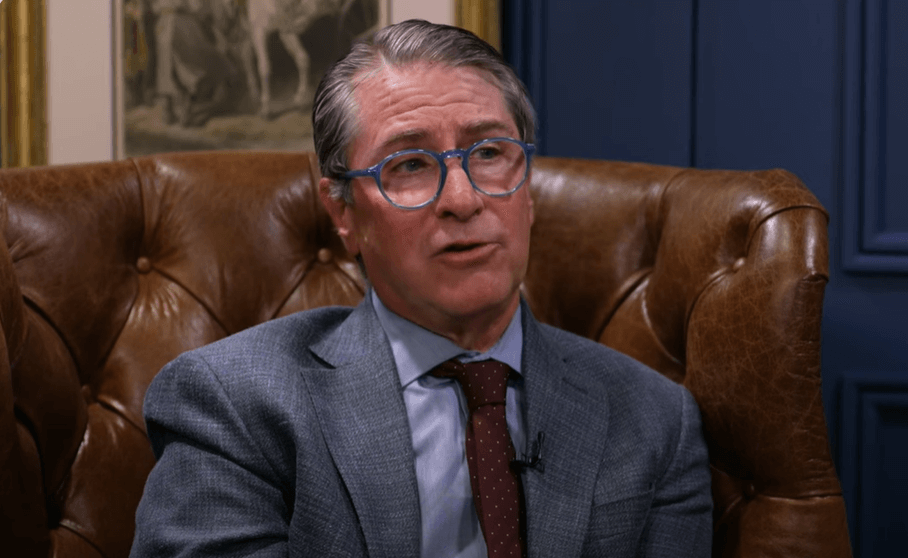Modern Age publisher and Intercollegiate Studies Institute President John A. Burtka IV kicks off the “Daring Greatly” interview series with this in-depth discussion with Notre Dame professor of political science Patrick Deneen. Taking inspiration from the “mirrors for princes” literary genre, the series explores connections between philosophy and statesmanship. Xenophon, Cicero, Han Fei, Christine de Pizan, and other exemplars of this literature are featured in Burtka’s new book Gateway to Statesmanship.
In the edited excerpt below, Deneen considers Machiavelli’s role in establishing political modernity.
Burtka: In Harvey Mansfield’s famous introduction [to The Prince], he talks about how Machiavelli is this rupture from everything Christian and classical that came before him. But when I was reading some of these classical sources, like Xenophon—when I was reading ancient Indian, ancient Chinese texts on advising princes and rulers—it felt very Machiavellian to me, so it didn’t feel like there was a rupture from the classical world. Would you agree with Mansfield there? What was the novel contribution of Machiavelli?
Deneen: Christianity introduces a real problem for those who are of a narrowly political mind, and specifically Christianity creates a kind of condition of divided loyalties and introduces a perpetual, ongoing and irresolvable problem in the West.
Of course it’s something I regard as a blessing, but it’s also politically, a real problem, which is: how can you be simultaneously a good Christian and a good American? How can you be simultaneously a good Christian and a good Frenchman or a good Christian and a good German? How can you be simultaneously a good citizen and a good Christian?
Part of the effort to resolve this is to say if you can have a good enough Christian land, then that gap closes. But then we get into the problem: Can you be a good Christian land? Can you have a good Christian politics? Now are we betraying Christ’s understanding that there’s paying to Caesar what is Caesar’s and paying to God what is God’s?
Doesn’t getting too involved politically corrupt Christianity? Hasn’t that been the lesson of the Middle Ages? And isn’t a result of that the idea that the benefit of separation [between Church and State] isn’t merely secular but also redounds positively to religion and to the churches?
Christianity introduces this real problem, and I would say that what’s new about Machiavelli isn’t anything that you don’t find in the classical tradition: Plato talks about the noble lie; Aristotle says there are times when tyranny can actually be good; there are Machiavellian so-called “moments,” or realist moments, in all of these. Thucydides, of course, would be another obvious example.
I would say what the radical teaching of Machiavelli is—and maybe why so many political theorists end up skipping [the Middle Ages]—is that he allows us now no longer to have to deal with that problem. It’s less that he introduces realpolitik that already exists, it’s that he says the solution to the problem of Christianity is not merely go back to antiquity but to render Christianity tractable to politics.
He even goes so far as to say that people who have understood Christianity to be about humility and about being saintly and peaceful have misinterpreted Christianity. He reinterprets Christianity to be a kind of civil religion. It’s very recognizable to those of us who recognize aspects of Christianity being turned into a kind of civil religion in the American context.
I think that you could say Machiavelli is the figure that, at least in one sense, solves the problem of Christianity in what has been Christendom, and I think that’s what’s radical about it. It’s not that there weren’t thinkers who were beginning to talk about this, but Machiavelli is pretty bold about it—he’s bold and also cagey, but it’s quite clear that he wants not merely to revive certain aspects of the classical teaching but to do so in ways in which the Christian understanding now can be resolved not by eliminating it but by making it tractable and subject to political considerations.
Much of the subsequent history of political thought now becomes pretty simple. Christianity becomes useful to the city because it leads people to be moral. Like George Washington in the Farewell Address: Christianity and the morals that are taught by Christianity are useful—they’re of benefit politically. Or Christianity is folded into politics not as a civil religion but as a transference of the Christian idea of salvation into politics, which of course is the Voegelinian reading and understanding of progressivism or historicism, of the utopian object of politics in the Germanic or Rousseauan tradition, Marx being the paramount example of the effort to translate, or to rewrite, Christianity into a story that can be achieved through politics.
So I think Machiavelli brings together the two cities [heavenly and earthly], and that’s what’s revolutionary in the post-Christian age. It’s not eliminating Christianity, it’s not saying let’s go back to the pre-Christian era, but it now makes Christianity politically tractable.
You can watch the full video here:















